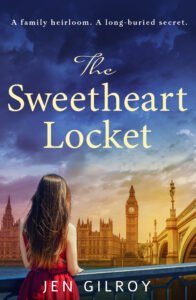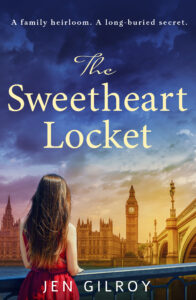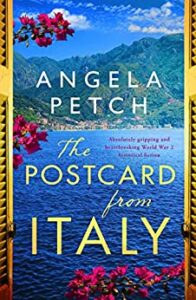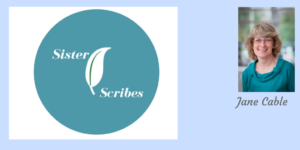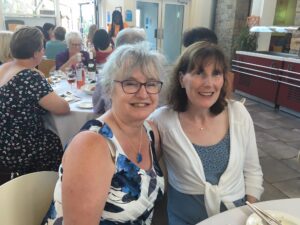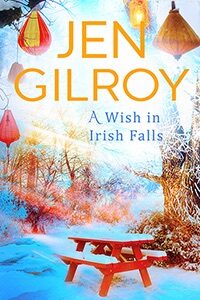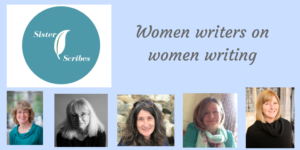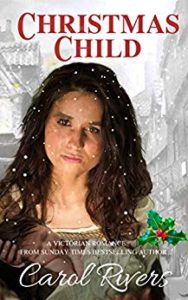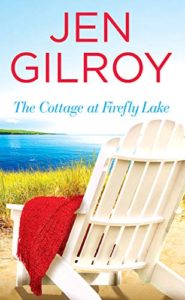Phil Rickman’s The Fever of the World reviewed by Georgia Hill
This is book 16 in the Merrily Watkins series featuring a beleaguered vicar and “Deliverance Consultant” – or exorcist – and set in the Welsh Marches. There’s a mysterious rockfall death, an examination of Wordsworth and his experiences as a young man in the Wye Valley, the odd Druid (a very odd Druid) and it’s all wrapped around with Covid’s cold, clammy hand. Phil has a cult-like following (I’m one) and his Merrily books are a fabulous and impossible to categorise mix of crime, the supernatural and folklore. Go read!
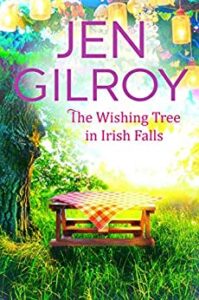 Jen Gilroy’s The Wishing Tree in Irish Falls reviewed by Jane Cable
Jen Gilroy’s The Wishing Tree in Irish Falls reviewed by Jane Cable
I’ve been meaning to read this book for a long time and I enjoyed it so much I’m disappointed with myself for putting it off. It was absolutely delightful to escape to a small town community in the Adirondacks, the kind of place I suspect many of us have a secret hankering to live.
Jen Gilroy draws both the people and the place so beautifully, even the most minor of characters come alive in her skilled hands. I was pulled into Annie and Seth’s stories from the moment we meet them both. I knew they both had journeys to take and I knew how those journeys would end, but that’s the point of romantic fiction, isn’t it? No huge surprises, but a really interesting and emotional story that felt as though it was about real people. A place and a time to lose myself in with characters who become to feel like friends.
Not trying to be anything fancy, this is feelgood romance at its best.
Faith Hogan’s The Gin Sisters Promise reviewed by Morton S Gray
I loved Faith Hogan’s novel The Ladies’ Midnight Swimming Club and that was what attracted me to this title. Having finished this one, I’m off to find her other books.
A story full of love, pathos, family misunderstandings, secrets and laughter. Initially I wondered if I would cope with the three sisters’ storylines, but I soon became absorbed in their lives, loves and losses.
The book made me think about legacies and the family tangles and feuds we get into over the years.
I wanted each of the sisters to get their happy ever after and it seems their father did too. Definitely a thought-provoking novel which made me experience a wide variety of emotions from laughter to tears. Highly recommended.
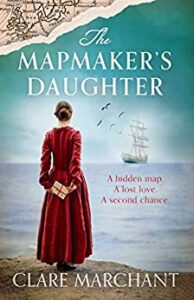 Clare Marchant’s The Mapmakers Daughter reviewed by Kitty Wilson
Clare Marchant’s The Mapmakers Daughter reviewed by Kitty Wilson
Probably my favourite book of the year so far. Both timelines fully held my attention and I loved both Frieda and Robyn’s stories. Clare Marchant’s writing is so skilled that she takes you deep into the heart of Tudor London, all the senses stimulated and I really felt if I was there, hearing, seeing, smelling all that was going on around her characters. The detail she weaves though is not merely evocative, her books are so well researched that I learn things that I did not before and she always makes me want to dive into further research the minute I finish reading.
Her writing is taut and deftly woven, everything moves the story on, informs the reader and weaves together a truly spellbinding story. The jeopardy she creates had me gasp out loud, my heart pounding with fear – all whilst safely tucked up in my own bed, such is the skill with which she writes. Honestly, I thought this book was flawless and I suspect it will remain one of my favourites for years to come. Absolute perfection.




